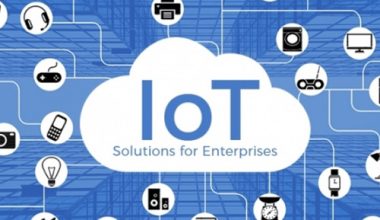The sales growth of the mini-laptops has fallen sharply as buyers eye more capable portable computers
Apple’s (AAPL) iPad is helping cool the computer industry’s netbook fever. Apple Chief Executive Steve Jobs has made no secret of his disdain for the popular, inexpensive mini-notebooks. “Netbooks aren’t better than anything. They’re just cheap laptops,” Jobs said at the Jan. 27 launch of the iPad tablet computer in San Francisco.
PC makers are starting to worry that consumers agree. The sales growth of netbooks, priced from $200 to $500 and resembling shrunk-down laptops, slowed markedly in the first quarter, according to market researcher IDC.
Netbook shipments to retailers from January through March are expected to grow 33.6% compared with a year ago, to 4.8 million units, IDC says. That’s significantly slower growth than in the first quarter of 2009, when netbook sales leapt 872%, to 3.6 million units. “Everyone tried to make these mini-notebooks out to be a different category, or different type of device,” says IDC analyst Richard Shim. “In fact, people think of them as just another type of PC.”
Falling sales aren’t the only problem dogging netbooks. There’s evidence that demand for netbook components is declining. The Web site DigiTimes reported on Mar. 30 that makers of the liquid-crystal-display panels used in netbooks are cutting production because of declining orders. PC makers including Hewlett-Packard (HPQ), Dell (DELL), and Acer declined to comment on whether inventories of unsold netbooks are on the rise.
Seeking the Next Big Thing
Susie Ramirez, a spokeswoman for Intel, which makes the Atom chip used in most netbooks, declined to say whether PC makers are ordering fewer of the chips. “Things change quarter to quarter, but in the end we’re looking at hundreds of millions of netbooks that will be sold over time,” she says.
Some PC makers are starting to look past the category and divine what will next capture consumers’ attention in the portable computer market. Michael Abary, senior vice-president of Sony’s (SNE) Information Products Technology Div., which makes Vaio-branded desktops, laptops, and netbooks, says the mini-laptops are “losing [their] novelty. Everyone is trying to figure out what’s next, now that we realize [sales are] not going to continue to grow at an astronomical rate.”
Sales of netbooks, which became popular among American consumers in 2008, exploded as recession-battered shoppers opted for the cheap but less capable laptops. When many people got them home, they were disappointed by flimsy keyboards, unfamiliar operating systems, and a lack of programs that could be run on the machines.
To be sure, absolute netbook sales have increased from a year ago. “They’re going to be a permanent part of the landscape,” says Shim. But consumers have become less willing to give up features available on full-priced laptops—such as the ability to play video games or edit photos—in favor of netbooks’ low price, he says. And full-fledged laptops are themselves becoming slimmer and smaller.
Profits at Risk
If netbooks become less attractive to consumers, it could hurt PC makers’ profits. Netbooks accounted for a record 26% of all PCs sold during the holiday shopping period, according to PC vendors.
During the past two years, amid weak business sales of PCs, many retailers have emphasized computers that appeal to consumers. Best Buy (BBY), the nation’s largest consumer electronics retail chain, reported that netbooks contributed to double-digit growth in mobile computer sales during the holiday shopping season. Best Buy spokesman Justin Barber says the company won’t discuss sales for the first quarter until results are reported.
The imminent arrival of the iPad, which goes on sale in the U.S. Apr. 3, may be partly to blame for netbooks’ cooler reception. A Web survey of 1,631 consumers released Mar. 30 by comparison-shopping Web site PriceGrabber.com found that about a fifth of potential netbook and notebook buyers are considering buying an iPad instead of a more traditional portable machine.
The iPad, a touchscreen tablet computer that starts at $499, will let users read e-mail, access the Internet, watch videos, and read electronic books, magazines, and newspapers. Many netbooks, which are far less powerful, sell for about $300.
Resource:
http://www.businessweek.com/technology/content/apr2010/tc2010041_600018.htm




